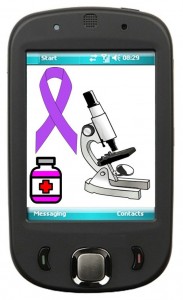A bug that can infect that operating system can spread itself with nothing more than one text message.
Smartphones that run on the Android operating system are now at risk of an important mobile security flaw that could allow a properly infected text message to take over the device.
It is currently estimated that nearly 1 billion devices around the world are vulnerable to this bug.
According to mobile security experts, this flaw is now considered to be “the word Android vulnerability in the mobile OS history.” Zimperium researchers that focus on this type of issue were among those who initially released details regarding this threat, which has been called “Stagefright.” This threat is dangerous enough that it can infect an Android based smartphone simply through the receipt of an MMS message, regardless of whether or not the device user actually opens it.
Once the text is received, the mobile security bug activates a code which releases full control of the device to an attacker.
 This Android bug gives the attacker control over everything from the camera and microphone to the data on the device, which can then be copied. In their blog releasing information about Stagefright, the Zimperium researchers explained that “These issues in Stagefright code critically expose 95 per cent of Android devices, an estimated 950 million devices.”
This Android bug gives the attacker control over everything from the camera and microphone to the data on the device, which can then be copied. In their blog releasing information about Stagefright, the Zimperium researchers explained that “These issues in Stagefright code critically expose 95 per cent of Android devices, an estimated 950 million devices.”
While Google has already issued a repair for the security flaw for its Android operating system, many carriers and phone makers haven’t yet released the update to consumers.
The problem, itself, was first spotted back in April by Zimperium’s Joshua Drake. Drake received recognition for this discovery by Google, when the company released a statement saying “We thank Joshua Drake for his contributions. The security of Android users is extremely important to us and so we responded quickly and patches have already been provided to partners that can be applied to any device.”
Google also took care to point out the mobile security steps that are already in place for devices that run on its operating system. It pointed out that the majority of Android based devices, including all of the ones running on the newer versions of the OS, include a number of different technologies that have been “designed to make exploitation more difficult.” Among them is an app sandbox that is meant to help to keep user data and other device apps protected.

 These imbalances to the metabolism that result from proximity and/or use of mobile devices and other wireless gadgets, are what is linked to the development of cancer as well as neurodegenerative diseases, skin rashes, headaches, and other issues.
These imbalances to the metabolism that result from proximity and/or use of mobile devices and other wireless gadgets, are what is linked to the development of cancer as well as neurodegenerative diseases, skin rashes, headaches, and other issues.